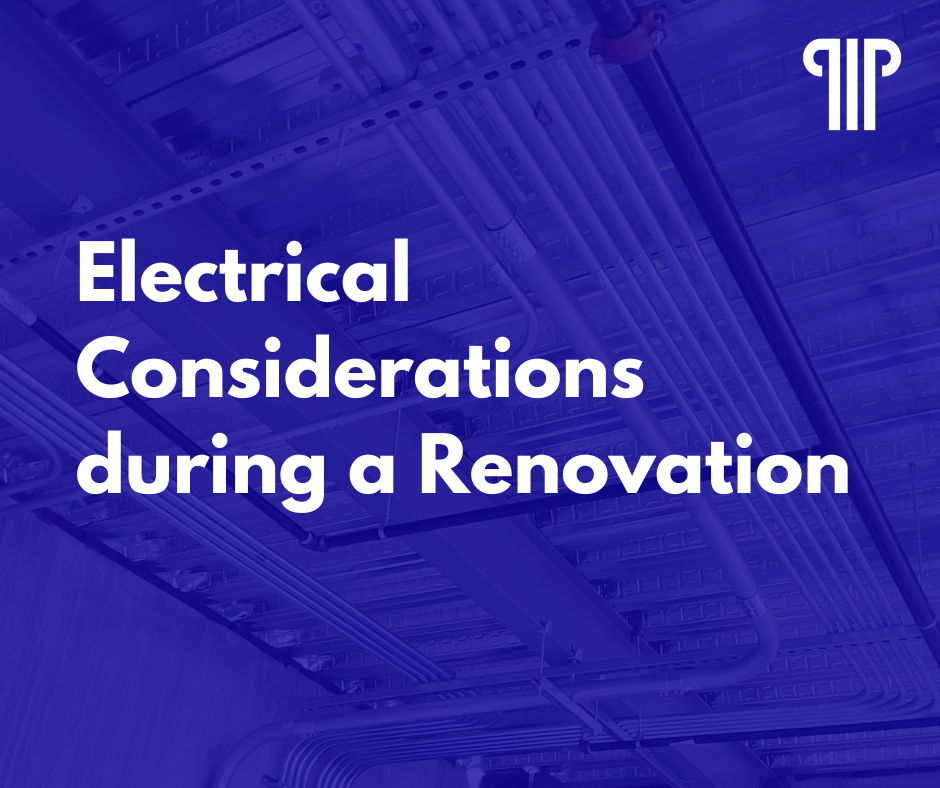
When renovating a building, property owners should take several electrical considerations into account. Here are some key points to consider:
- Electrical System Evaluation: Before starting any renovations, it’s crucial to assess the existing electrical system’s condition and capacity. Determine if the system can handle the increased electrical load that may result from the renovation. Consider consulting with a licensed electrician or electrical engineer to evaluate the system and provide recommendations.
- Building Codes and Permits: Familiarize yourself with local building codes and permit requirements related to electrical work. Ensure that all electrical modifications and installations comply with these regulations. Obtain the necessary permits before initiating any electrical work to avoid potential legal issues.
- Power Distribution: Evaluate the power distribution requirements based on the renovated space’s new layout and purpose. Determine if the existing electrical panel and service are adequate or if an upgrade is necessary to support the increased demand. Adequate power distribution ensures that the electrical system can handle the load requirements of the renovated building.
- Wiring and Outlets: Assess the condition of existing wiring and outlets. Older buildings may require rewiring to meet current electrical standards. Consider the placement and quantity of electrical outlets to accommodate the needs of the renovated space. Ensure that all new wiring and outlets are up to code and installed by a qualified electrician.
- Lighting Design: Plan the lighting design for the renovated areas. Determine the types of lighting fixtures, their locations, and the appropriate wiring needed to support them. Incorporate energy-efficient lighting options, such as LED fixtures, to reduce electricity consumption and lower long-term costs.
- Safety Measures: Enhance electrical safety during the renovation by considering the installation of Ground Fault Circuit Interrupters (GFCIs) in areas prone to moisture, such as bathrooms and kitchens. Install smoke detectors and carbon monoxide detectors in appropriate locations throughout the building.
- Energy Efficiency: Take advantage of the renovation to improve the building’s energy efficiency. Consider upgrading to energy-efficient appliances, HVAC systems, and lighting fixtures. Install programmable thermostats and consider integrating smart home technology to optimize energy usage.
- Accessibility: Consider the electrical needs for accessibility features if the renovation includes areas that must comply with accessibility guidelines. Install adequate lighting, accessible outlets, and consider options like motion sensor lighting for convenience and safety.
- Future-Proofing: Anticipate future electrical needs and technologies. Install extra conduits or cables to accommodate potential future expansions, such as additional rooms, appliances, or smart home devices. This can help avoid the need for significant electrical modifications later on.
Remember, electrical work should be performed by qualified professionals to ensure safety and compliance with regulations. Consulting with licensed electricians or electrical engineers will help you make informed decisions and ensure that the electrical aspects of the renovation are properly addressed.

